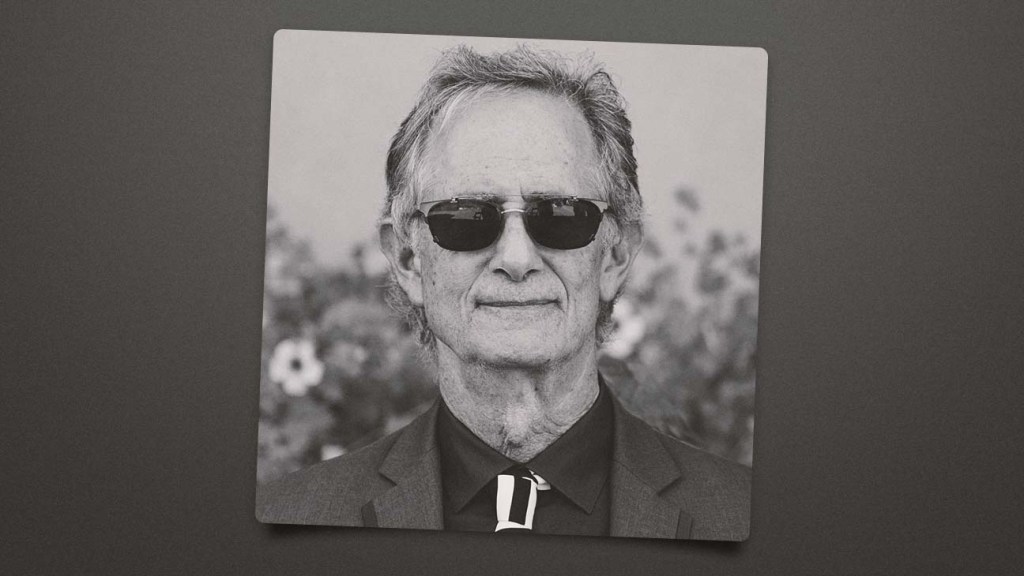
Marc Thorpe
Courtesy of Megan Feffer
Marc Thorpe, who created special effects for Star Wars and Indiana Jones films before launching Robot Wars, which feature radio-controlled gladiators in events he called “festivals of destruction and survival,” has died. He was 77.
Thorpe died Friday of complications related to Parkinson’s disease at a hospice facility in Alamo, California, his daughter, Megan Feffer, told The Hollywood Reporter. He was first diagnosed with the progressive disorder that affects the nervous system in 1993.
“For him, early onset Parkinson’s disease started out with relatively mild tremors and then over time progressed toward less and less bodily autonomy — something particularly torturous for a fiercely independent artist like my dad whose joy in life was to create things with his hands,” she wrote on Facebook.
“While the disease itself is not technically considered terminal, it does eventually remove crucial functions like movement and swallowing — functions essential for life. To say the last few months, and especially the last few weeks, were challenging for my dad would be an understatement, and I am grateful that he is finally at peace.”
Thorpe joined Industrial Light and Magic/Lucasfilm in 1979 as a model maker and animatronic designer and served as a member of the optical effects unit on the second Star Wars film, The Empire Strikes Back (1980).
He also contributed to Return of the Jedi (1983), the Indiana Jones movies Raiders of the Lost Ark (1981), The Temple of Doom (1984) and The Last Crusade (1989) and such other features as Dragonslayer (1981), Poltergeist (1982), Explorers (1985), Howard the Duck (1986) and The Hunt for Red October (1990).
Thorpe came up with the idea for Robot Wars in 1993 while he was inventing toys unrelated to movies as a senior designer at LucasToys and tinkering with a radio-controlled vacuum cleaner on the side.
“One day I took the vacuum off the tank and as I looked at it, the 8-year-old boy in me envisioned its potential as a dangerous toy with battery-powered tools mounted on it,” he recalled. “I had a vision of it cutting its way through a wall.
“I could stage events and invite competitors to build their own vehicles to compete in them. Merchandising revenue from licensing would be the principal revenue stream … i.e. toys. Robot Wars would own the licensing rights to mechanical athletes that others would build to enter the competitions.”
Lucasfilm did not oppose him trademarking Robot Wars — “I like to think it was because they wanted me to succeed with my new business,” he said — and he called his first event, held in 1994 at the Fort Mason Center for Arts & Culture in San Francisco, a “raging success.”
As Kyle Barr wrote for Gizmodo: “The shows were manic, no-holds-barred death matches that featured stomping, slamming, spinning, murderous, mauling, manic machine mayhem. With the same sense and styling of a boxing match, the scenes could be far more brutal than two people slugging it out in a ring.
“Robot Wars arenas could involve environmental hazards like giant nets, wrecking balls or flamethrowers. It was a spectacle of robo-gladiatorial combat that sucked a generation of mechanical engineers into a whole new, visceral kind of sport and inspired so many people to get into the field of robotics.”
Marc Allen Thorpe was born on Nov. 9, 1946, in San Francisco and raised in nearby San Leandro. He attended Cal State University at Hayward and then graduate school for art at UC Davis, where he studied under William T. Wiley and received a master’s degree in 1971.
In 1974, Thorpe received a fellowship from the National Endowment for the Arts for a “behavioral sculpture” project at Marineland in Florida that involved training two female dolphins to perform sustained synchronous swimming patterns. (Betty and Eva, a 9-minute documentary about the project, can be seen here.)
He left LucasToys in 1994 and produced Robot Wars events through 1997, when he lost creative control of the business to Profile Records. He later was on the board of directors of Public Art Works in Marin County, California; served as a mechanical engineer at Electronic Arts and RunBot; and owned his own company, Marc Thorpe Designs.
A Robot Wars combat competition series ran on British television in 1998-2004 and 2016-18. A similar show, BattleBots, has aired since 2000.
In addition to his daughter, survivors include his grandchildren, Evelyn and Elliott.
Rhett Bartlett contributed to this report.